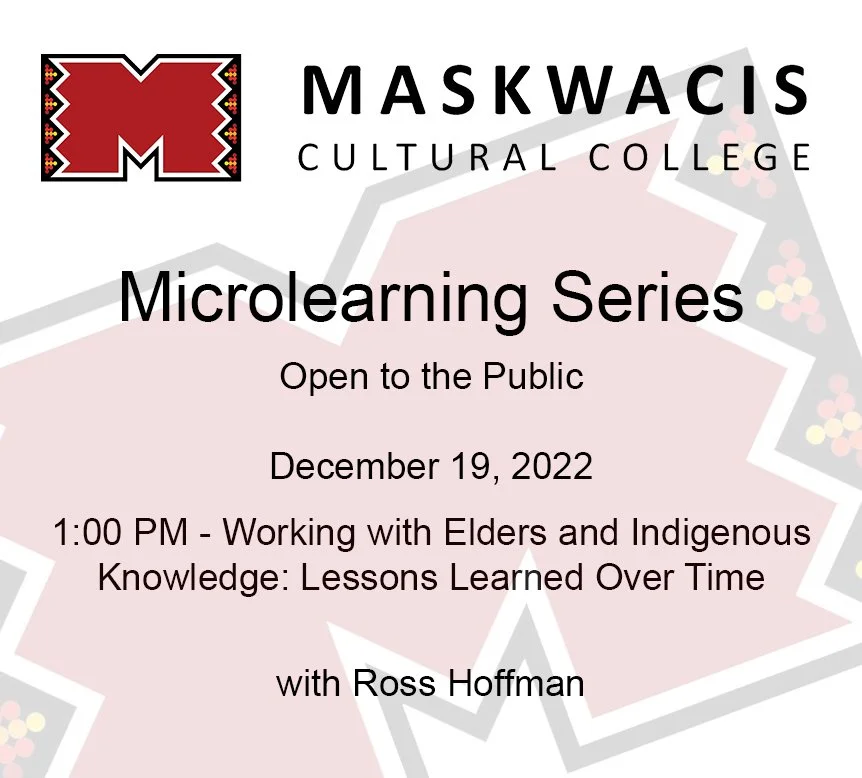Working with Elders and Indigenous Knowledge: Lessons Learned Over Time
In this short presentation I will share some of the guiding principles that I have learned working with Elders and Indigenous Knowledge over the many years of my academic and personal journey. These guiding principles/ethics, and ways of acting, form the basis for respectful and responsible work within Indigenous contexts.
Presenter/Facilitator Bio
Ross Hoffman
Ross is Professor Emeritus in the First Nations Studies department at the University of Northern BC. He completed his Ph.D. in Native Studies at Trent University in 2005. Ross has worked with Wet'suwet'en, Gitxsan, and Cree communities on a variety of community-based research projects in the areas of education, language and culture, and health and wellness. His broad research interests include studying the relationship between cultural renewal, identity, and healing. His scholarship rests within both the western academic tradition as well as an Indigenous knowledge tradition. The focus of his scholarly work has been to respect, balance, bridge, and integrate these two epistemological traditions. This ‘dual scholarship’ is possible because he has been blessed with the guidance of Elders within an academic environment as well as in community-based traditional settings. His prolonged study with Elders has provided him, a non-Aboriginal person, with the necessary understanding to conduct respectful, responsible research that is meaningful and valuable both within the discipline of First Nations Studies and within the communities that he works with.
Cost: Free
Registration Link: https://forms.gle/npBFtATuqqAgbxhj6
This is part of the Maskwacis Cultural College Microlearning Series and is open to the public.
Contact Manisha Khetarpal by email mkhetarpal@mccedu.ca or call toll free: 1 866 585 3925

